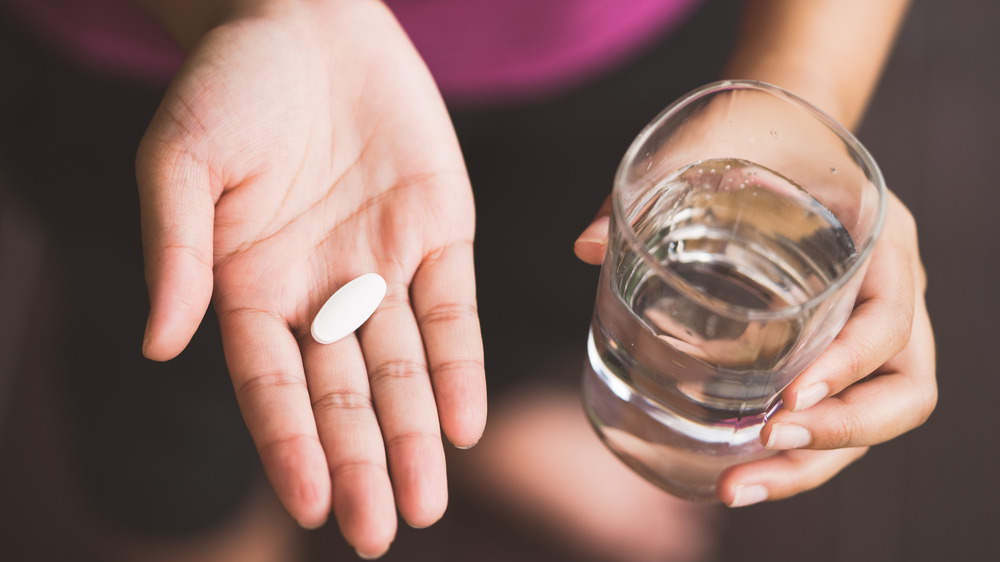How Much Vitamin A You Really Need Every Day
Chances are, you've seen the aisles at the drug store dedicated to supplements of all kinds. Vitamins and minerals packaged in a variety of pills, gummies, powders, and drinks are readily available. But many of these supplements just aren't necessary. And while you may think you need to supplement your diet with vitamin A to help with bodily functions like vision and immune response, chances are, you're already getting the recommended daily amount through the foods you eat.
Vitamin A comes in two forms that humans are able to use (via the National Institutes of Health). The first is preformed vitamin A, which only comes from animal products such as dairy, meat, and fish. The second is provitamin A carotenoids. This is a group of plant pigments that the body can turn into vitamin A. The most well-known example of a provitamin A carotenoid is beta-carotene. This is the pigment that gives carrots their orange hue (via the University of Rochester Medical Center). It's also an antioxidant that helps defend cells from damage.
Should you bother with a supplement?
Your body uses vitamin A to produce rhodopsin, a protein that helps absorb light in the retina of the eye. By not getting enough vitamin A, your ability to see color and to see in low light diminishes (via Insider). Vitamin A has been linked to the reduction in the risk of developing macular degeneration in people who are more susceptible to the condition (via Mayo Clinic).
Most people get enough vitamin A in their diet by eating a variety of foods like dairy, leafy green vegetables, carrots, and meat. But for people with eye diseases, pancreatic disease, or even measles, supplemental vitamin A can be helpful. If that's not you, it's important to make sure you're not getting too much vitamin A. The recommended daily allowance for vitamin A for healthy adults is 900 mcg of retinol activity equivalents (RAE) for men and 700 mcg of RAE for women. Allowances vary slightly depending on age and other conditions. When you look at the label on a bottle of vitamin A supplements, the units will most likely be in international units (IU), so there may be some conversions to do in order to find out the RAEs in a serving of the supplement. Because too much vitamin A can be harmful, it's always a good idea to talk to a trusted medical professional before taking a vitamin A supplement.


